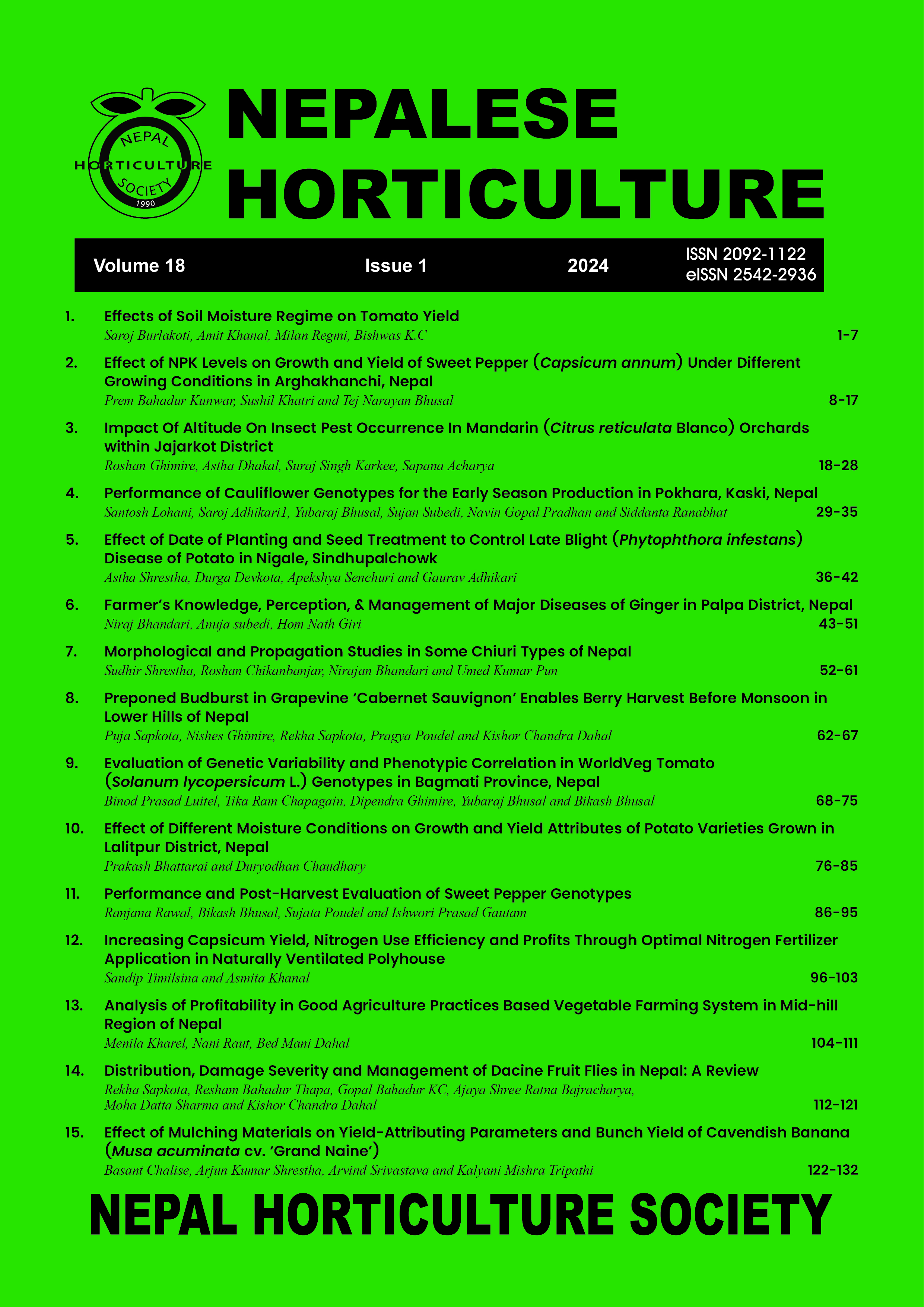Evaluation of Genetic Variability and Phenotypic Correlation in WorldVeg Tomato (Solanum lycopersicum L.) Genotypes in Bagmati Province, Nepal
DOI:
https://doi.org/10.3126/nh.v18i1.72668Keywords:
Fruit yield, Heritability, Indeterminate, Open pollinated, Phenotypic coefficientAbstract
This study was conducted to investigate the genetic variability and correlation between phenotypic traits in WorldVeg tomato genotypes in Nepal. Nine indeterminate tomato genotypes (eight WorldVeg and one commercial open-pollinated variety) were studied at the National Horticulture Research Center (NHRC), Khumaltar in a randomized complete block design (RCBD) with three replications during 2021–2022. Analysis of variance (ANOVA) revealed that genotypes showed significant genetic differences in all the plant and fruit traits except fruit firmness. AVTO1306 produced the maximum fruit yield (5.1 kg plant-1), followed by AVTO0301 (2.9 kg plant-1). The analysis of genetic variability showed that magnitude of phenotypic coefficient of variation (PCV) was greater than the genotypic coefficient of variation (GCV) for all the traits. Higher PCV values were observed in the titrable acidity (61.7%), number of fruit plant-1 (44.3%), fruit firmness (41.9%) and fruit diameter (41.8%), whereas higher GCV values were found in the titrable acidity (41.8%), plant height (36.9%) and late blight (30.2%). Late blight (LB), plant height and fruit yield plant-1 showed high heritability values indicating that these traits are more reliable for effective selection and enhancement in tomato breeding lines.
Downloads
Downloads
Published
How to Cite
Issue
Section
License

This work is licensed under a Creative Commons Attribution-NonCommercial 4.0 International License.
© Nepalese Horticultural Society

